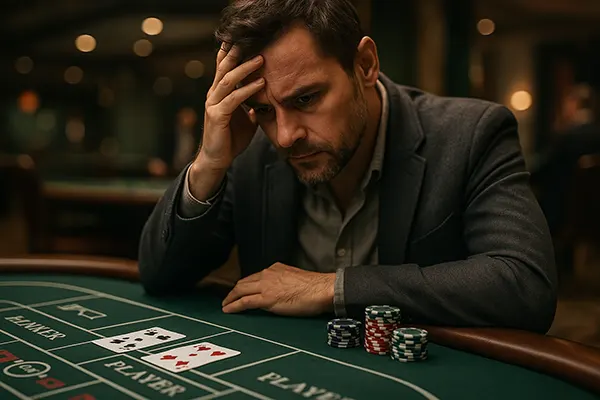
The Psychology of Playing Baccarat: How Emotions Affect Decision-Making
Baccarat, often seen as a game of elegance and simplicity, is deeply influenced by the mental state of the player. Behind every hand dealt, psychological patterns play a silent yet powerful role. Players, whether seasoned or new to the game, often find their decisions guided not solely by odds but by emotions, instincts, and mental habits. Understanding these emotional dynamics can empower individuals to make more rational choices and enhance their overall gameplay experience.
The Emotional Triggers Behind Baccarat Decisions
In Baccarat, even though the choices may appear limited—betting on the player, banker, or a tie—the psychological landscape is rich and complex. Winning or losing streaks can create cognitive biases, such as the gambler’s fallacy, where players expect that past outcomes influence future ones. This belief often leads to irrational decisions based on imagined patterns.
Stress and excitement are also powerful forces at play. The anticipation of each turn, especially during high-stake rounds, can lead to increased heart rates and adrenaline spikes. These physiological responses impact logical reasoning and can push players to take bigger risks than they initially intended.
Moreover, personal belief systems contribute heavily. Some players rely on lucky charms or betting rituals, convinced these behaviours improve outcomes. While such actions may offer emotional comfort, they rarely align with mathematical probabilities and can lead to inconsistent betting strategies.
The Role of Ego and Control in Gameplay
Emotions tied to ego and self-control are particularly influential in Baccarat. When players win, it often reinforces a feeling of superiority or control over the game, even when luck is the driving force. This inflated confidence can encourage riskier bets and reduced caution.
On the other hand, losing can trigger emotional responses such as frustration, denial, or the urgent need to “win it back”—a phenomenon known as chasing losses. This state of mind leads players to make quick and less strategic decisions, hoping to restore balance, but often leading to deeper losses.
The illusion of control also plays a strong role. Even though Baccarat is largely a game of chance, players tend to believe their choices directly influence outcomes. This misconception fuels the emotional investment in each bet, tying personal worth to random results.
How Emotional Intelligence Improves Baccarat Performance
Emotional intelligence—the ability to recognise and manage one’s own emotions—can greatly improve a player’s experience in Baccarat. Recognising emotional patterns helps players take a step back before making impulsive decisions. Self-awareness serves as a protective mechanism against overconfidence or panic.
Practicing emotional regulation, such as taking breaks or using breathing techniques, enables players to maintain composure. These methods reduce the impact of adrenaline and cortisol, which otherwise impair judgement during gameplay. A calm mind is more capable of calculating risk effectively.
Another element is empathy and social awareness. In live Baccarat games, reading opponents’ reactions or understanding the social dynamic can subtly influence decisions. While the cards remain random, the social environment often adds another layer of pressure or persuasion.
Preventing Emotional Burnout at the Table
Playing Baccarat for extended periods without emotional management can lead to mental fatigue. Players may feel detached, irritated, or experience decision paralysis. Recognising these signs early and stepping away from the table is essential for long-term success.
Setting predefined limits—both financial and time-based—helps create structure. With limits in place, players are less likely to chase losses or exceed their comfort zone. Sticking to these boundaries requires discipline, which is a critical component of emotional intelligence.
Lastly, seeking entertainment rather than validation or profit is key. Baccarat should be seen as a form of leisure, not a way to cope with stress or boost self-esteem. Approaching the game with a balanced mindset leads to healthier gambling behaviour and a more sustainable experience.
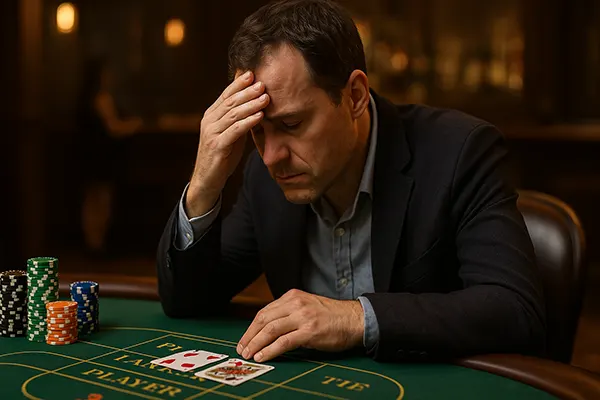
The Importance of Mindfulness in Baccarat Strategy
Mindfulness, or being fully present in the moment, offers a strong counterbalance to emotional impulses. When players are mindful, they are more aware of internal emotional cues and external game factors. This awareness allows for more deliberate decisions, even in high-pressure situations.
Focusing on the present hand rather than dwelling on previous outcomes is a powerful tactic. Mindfulness discourages overthinking and reduces the mental noise that often clouds judgement. It allows players to evaluate bets based on current information, not emotional residue from past rounds.
Additionally, mindfulness practices can reduce the allure of risky bets that feel thrilling but are statistically unwise. Regular meditation or grounding exercises before or during play help players centre themselves, maintain emotional equilibrium, and avoid falling into destructive behavioural loops.
Integrating Mindfulness into Regular Gameplay
Developing a mindfulness routine does not require hours of meditation. Simple practices such as observing one’s breath before each betting round or pausing between decisions can significantly enhance focus and control. These micro-moments provide clarity in fast-paced environments like Baccarat.
Some online platforms now offer features like session timers or reminder notifications to encourage breaks. Players who use these tools consciously often report greater satisfaction and fewer emotional spikes. Integrating technology into mindfulness routines creates a more structured and responsible gambling experience.
Ultimately, combining mindfulness with emotional intelligence results in more stable and rational gameplay. Baccarat becomes less about chasing outcomes and more about engaging thoughtfully with each decision. This mindset fosters enjoyment, control, and psychological resilience at the table.
The most popular articles
-
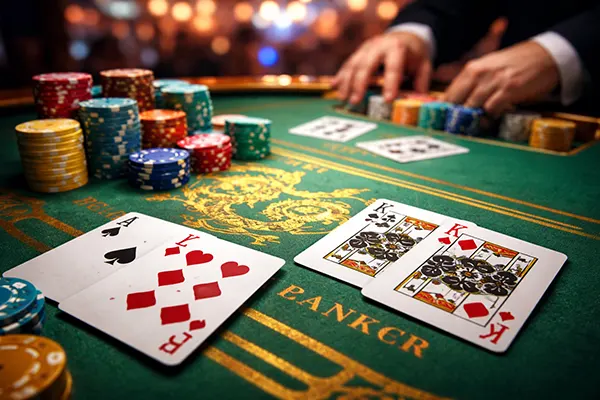 Side Bets in Baccarat: A 3-Step Sanity Fil...
Side Bets in Baccarat: A 3-Step Sanity Fil...Side bets in baccarat are marketed as small add-ons, yet in practice …
-
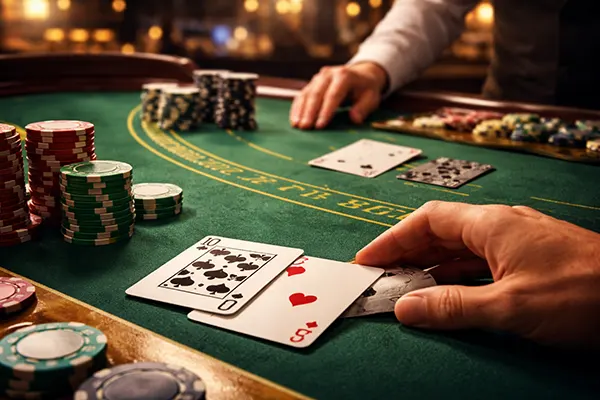 Blackjack Surrender Rule: When Giving Up I...
Blackjack Surrender Rule: When Giving Up I...Surrender is one of the most misunderstood options in blackjack because it …
-
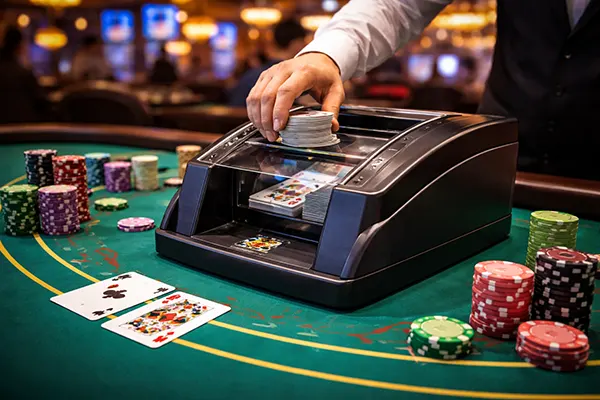 Shuffle machines and continuous shuffling ...
Shuffle machines and continuous shuffling ...Blackjack looks like a simple game of 21, but what happens before …
